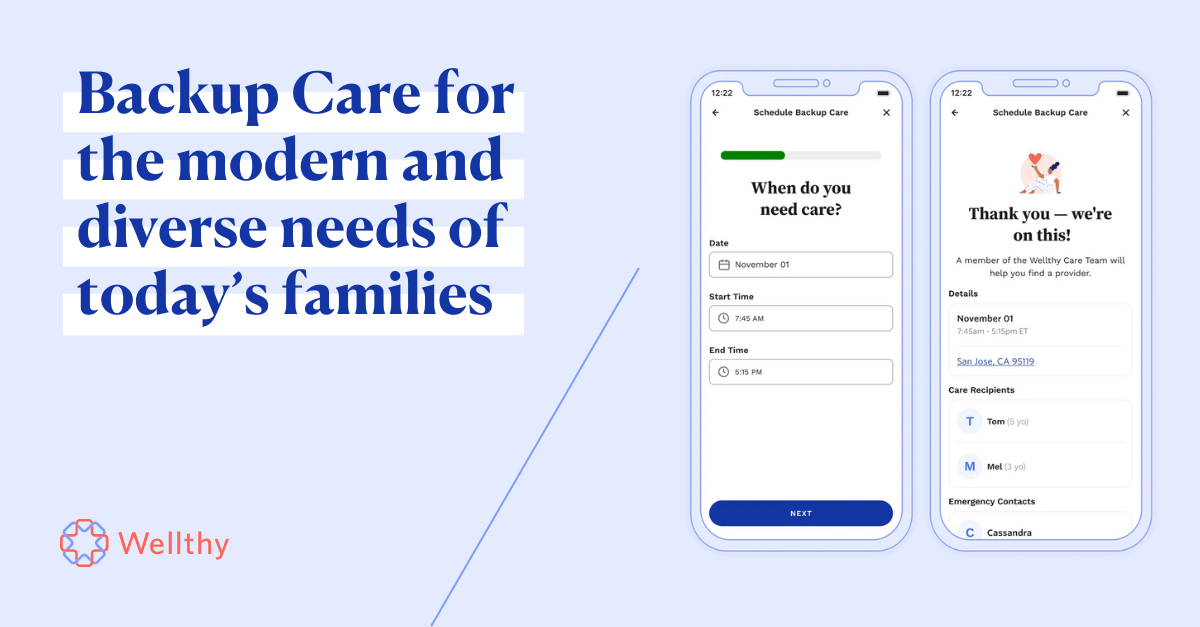With our Care Expert Spotlight series, we’re taking a peek into the lives of Wellthy's amazing care professionals.
This month we spoke with Teresa, a Care Coordinator with a background in geriatrics, in-home support, and home placement. Wellthy’s team of Care Coordinators and Advisers work directly with families to understand their care needs, create a care plan, prioritize tasks, and get things done on their behalf.
Teresa is also a Moderator for Wellthy Community, a peer support network for Wellthy members allowing family caregivers to connect with each other online. For more information on Wellthy Community, check out this post.
What is your background in?
Predominantly geriatric social work. I have worked in retirement communities and nursing homes, and have done telephonic consultations for elder needs. For about five years, my partner and I ran our own senior concierge business where we took care of seniors to help keep them in their home. We helped them with transportation, money management, things of that nature. I’ve also participated in speaking engagements to help people understand the community resources available to them.
What is your personal caregiving story?
My most recent caregiving experience was with my older sister who was diagnosed with end-stage colon cancer. I live on the east coast and she lived alone on the west coast. My siblings and I did the best we could to carry her through the end of her journey. We each took turns staying with her for a week or two at a time to help her with chores around the house and getting her to medical appointments. She came to me one day and said, “How does it feel to have a sister who’s dying?” It was completely surreal. It came with a lot of struggles, but it was also a privilege to help her wrap up her life, both emotionally and logistically.
When caring for your sister, how did your family delegate responsibilities?
We each took on a role, and luckily my sister knew who she wanted to be doing what for her. We also used an email group to keep each other updated on what happened during the most recent visit. Assigning tasks to everyone was critical because it made everyone feel like they were being helpful and contributing to our sister. It was equally as important for someone to stand up and say “I can’t do this,” if they didn’t feel ready to help yet.
What advice would you give to a first-time caregiver?
When the person you’re caring for says they’re fine, don’t believe them. My sister said this to me a lot when there would be a gap of a few days when she would be alone without a friend or family member with her. She didn’t want to be a burden but I knew her, and knew that she did want someone there every day. She didn’t even need a lot of physical help – it was about having someone in the house with her as she was going through this journey and someone to talk to when she was having a moment or needed a shoulder to cry on.
What inspires you to work in caregiving?
I’m a fixer and I’ve always liked helping people. The families I work with appreciate my honesty – I’ve had to have difficult conversations with some families, like when they want their loved one to remain at home, but that’s really not the best option. Even though it’s hard for them to hear it, they need to. When people come to us, they’re in caregiver mode and they are stressed and don’t know where to go, and it’s our job to guide them.
How do you handle when the person being cared for is resistant to moving out of their home?
Usually if they’re resistant, it’s because there’s a degree of dementia involved. I help the caregivers have those difficult conversations to convince their loved ones that maybe it’s time for a change. We talk about ways to approach those conversations if they have memory problems or are not convinced that they need more help. Depending on the situation, I’ll even offer to speak to the loved one myself as an outsider to the situation. A lot of times, aging parents don’t listen to their adult children because they still see their kids as their kids. It’s usually helpful to bring in a trusted third party like a religious leader or friend.
Do you have any tips for moving a parent into a facility if they are resistant?
Assisted living communities often offer short-term respite stays. If you want to get your loved one into an assisted living community, tell them they’re going in for a short trial. Don't bring in their own furniture – let them use the furniture at the facility because if they bring their own furniture right away, then they're going to think, “You're leaving me here.” It brings them the peace of mind knowing that they still have their own furniture at home. Once they decide they like the assisted living facility, you can bring in their furniture. Nine times out of ten, it works out.
Families often come back to me and say, “Mom was really reluctant to come here, but because you told us to tell her that it's just a trial and we'll see how she likes it, she bought into the idea and once we got her there and then she got used to the facility and started making new friends and going to activities, how much better off she is.”
Do you have a favorite moment from working with a family?
I was helping a family who had a son on the autism spectrum. He was 20 years old and living with his parents. When I set up a meeting with the family to touch base and introduce myself, we talked about their goals. They told me that he was interested in IT and currently working at Walmart, but they had hoped there was a future where their son could make more money and support himself.
They’d assumed that they wouldn’t qualify for support through the Developmental Disability Board because of their personal income. I let them know that he likely would qualify for help and connected them with services which helped him get a career coach and find a new job and opportunities to help advance his career. He even took a special driving instruction course and got his driver's license through the board’s support. I felt honored to be able to share these benefits with this family – the way we helped this family will carry throughout this man’s life.
What is one thing you wish families knew about geriatric care?
With geriatric care, terminology is so confusing – people think they understand what an assisted living facility is, but in many cases they don’t really understand what that is. When it comes to looking at future care options, in-home care, or housing options, it’s always best to have professional help. Going through Google will be just that – a Google search. For example with assisted living facilities, they’re not all created equal – and unless you’re in the business of senior services, chances are you need help sorting this all out, or else you’ll just be wasting a lot of time calling facilities that aren’t good fits.







